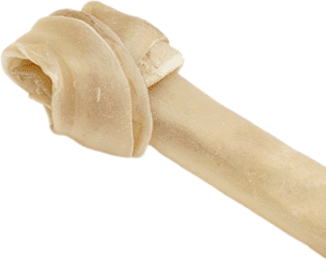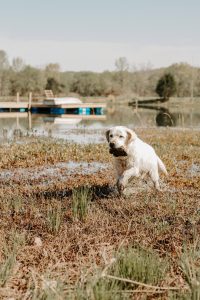


It may seem counterintuitive, but the more popular and in-demand a puppy breed is, the more likely it is that these dogs will be sold to families without the proper health clearances. Greater scrutiny makes it seem like breeders will conform to high standards and practices of breeding, but the reality is that popular breeds tend to attract pseudo-breeders looking to make a quick buck.

Image Source: https://www.pupmazing.com/labrador-retriever-intelligent-and-fun-loving/
Chocolate Labs, for example, are living shorter lives with a greater number of health issues through their lifespans because of a narrowing of the gene pool. Once the gene pool narrows, it’s hard to improve a dog’s health because of a lack of genetic diversity.
While some health issues for Labs are genetic, others are developed through their lifetime. This could be as a result of improper feeding habits, a lack of ongoing testing, and inadequate training during a pup’s early days.
Even if your Labrador is predisposed for particular genetic conditions, there are ways that you, as a responsible owner, can make decisions that will positively affect the long-term health of your Labrador Retriever.
To help you ensure the health of your dog, we’ve put together this guide on how you can assess the health of a labrador puppy and ensure you’re working with a good breeder.
Part of an ethical, responsible, and knowledgeable breeder’s best practices is to perform a health screening on the dams and sires that will mate. These health screenings allow breeders the opportunity to learn more about the gene pool they’re working with, whether any diseases are lurking about, and how to prevent them if they are.
Detecting genetic issues is a critical component that contributes to improving a breed’s health nationally. In other words, what an individual breeder does (or fails to do) affects the health of all future generations and stock of dams and sires from other breeders.
Just because a breeder offers a “health guarantee,” doesn’t mean they perform genetic testing of their dams and sires. A “health guarantee” is more about giving the “buyer” (soon-to-be owner) peace of mind. The idea is that if the puppy is not in the pink of health, they can “return” the puppy. However, once a family bonds with a puppy, they’re not going to want to return their new little one. Health guarantees are not synonymous with health clearances, so make sure to ask for records of health certificates and pre-breeding examinations.
Every breed of dog is more prone to a particular set of diseases and less likely to develop some others. Breeders who do genetic testing pre-breeding can ensure that their puppy is at a lower risk of developing these genetically-predisposed diseases. That’s why health clearances are so necessary – and that’s why they start with the breeder’s care and due diligence.
Before breeding, breeders who care about their dogs’ quality of life will obtain all appropriate health clearances. These “pre-breeding” exams should include hip and elbow clearance – especially for Labradors, who are at higher risk for developing issues like hip and elbow dysplasia in later life.
While the results of pre-breeding examinations are strictly confidential, the Orthopedic Foundation for Animals does post clear results from the OFA tests. PennHIP is another radiographic test that measures the likelihood for a dam and sire’s offspring to develop painful osteoarthritis in their adult years.
Pre-breeding exams for dams and sires typically include the following tests:
Health clearance tests differ from breed to breed. Labrador Retrievers, for example, benefit from further genetic health screening tests. Dominant and recessive genes in Labrador Retrievers play a role in everything from behavior, coat color, and ear length, to more serious issues like PRA blindness (which an Optigen test looks for).
Keep in mind, however, that just because a dam or sire tests positive for particular diseases, doesn’t mean they’re not healthy. Nor does it mean that they won’t breed. They could just be a carrier for the gene, which remains unexpressed, and it tells the breeder that some portion of their offspring may inherit this gene – either expressed or not.
Snowy Pines Labrador puppies are bred to be incredibly gentle, but they’re still energetic and curious little creatures that love to play and explore. These first years of their life should not be bogged down with health issues.
Your breeder should be able to provide records for vaccinations and testing, as well as health certificates if that’s what their state requires. These documents will guarantee that the puppy is healthy and free of any serious infectious diseases. Families should take their puppy to the vet within 48-72 hours of bringing their new bundle home and double-check these assurances and vaccinations with their family vet.
Once the initial guarantees are clear, you’ll need to monitor your Labrador puppies as they grow and develop, well into adulthood. These are the most common issues Labradors may face as they age.
Hip dysplasia is not restricted to Labrador Retrievers. Any large breed of dogs can present with an abnormal formation of the hip joint and socket. The dog’s large size stresses this already-present issue which then causes painful arthritis.
Both the dam and sire must have excellent hip scores, and this is where OFA tests and certifications can tell you whether this is truly the case or not.
Elbow dysplasia is a similar, but more Labrador-centric issue. It presents in a variety of ways, including lameness, abnormal gait, holding the elbow at odd angles, and a reticence to play and move. Your dog could become easily tired, experience stiffness when standing, and may experience inflammation of the joint.
As a genetic disease, TVD is a congenital issue that could affect your pup long-term. The tricuspid valve in a dog with TVD is malformed and, as a result, the heart cannot pump blood as effectively as in healthy dogs. A Labrador with TVD will experience fluid or swelling, stunted growth, and loud breathing. Tests include a urinalysis, a complete blood count, and a chemical blood profile.
CNM, as it’s better known, is similar to muscular dystrophy in humans. Dogs with CNM experience weight loss, gradual loss of tendon reflexes, an awkward gait, and eventually display exercise intolerance. It’s a recessive genetic issue that can be tested.
Many of the above issues lead to exercise intolerance. Known as EIC, exercise intolerance is a gradual weakness and decline in Labradors because of related diseases. They’ll experience weakness in their hindquarters and simply collapse after a mere 10 to 15 minutes of continued, high-intensity exercise.
Dogs have a good intuition about when an epileptic seizure is about to strike in their humans. However, they’re less acutely aware of oncoming seizures in themselves. Labradors with NARC issues could fall asleep suddenly or experience sudden shaking that resembles a seizure. It’s not a frequent occurrence, but there is a Labrador-focused test for this illness.
Like previous diseases, narcolepsy in Labradors is a recessive condition. Depending on the severity of the issue or the genetic dominance, these tests provide awareness and information for both the buyer and the breeder. That way, if any related health issue comes up in the future, owners who buy Labrador puppies from reliable breeders have a clear family history.
Responsible breeders know that it’s not a good idea to limit the gene pool by selecting only dogs that have none of these genetic predispositions either because too many limitations could also cause abnormalities down the line.

Health guarantees and health clearances should give you, as a potential owner, more than just peace of mind. Health clearances help to ensure that all future generations of puppies are healthy, happy, and a part of a diverse genetic pool.
At Snowy Pines White Labs, we encourage our families to look for health clearances based on two guarantees: Firstly, that your chosen puppy is currently healthy and is without any infectious diseases. We recommend families ask for health certificates issued by a vet, which confirm your pup’s health.
Secondly, breeders should also offer a clearance that guarantees against the presence of major congenital defects and other genetic issues for quite some time after bringing your puppy home. Hip and elbow dysplasia and tricuspid valve dysplasia are examples of these genetic conditions that shouldn’t be occurring in the first few years of a puppy’s life.
Snowy Pines White Labrador puppies are a special part of our family and we treat them as such. Dogs from our dams and sires have produced generations of healthy, happy, and high-quality puppies with a formidable family history. Learn more about the lineage of our Labrador puppies or about how one-on-one care and individual attention for our puppies makes all the difference.